William and Kate’s star power puts monarchy future in good light
‘Relatable’ William and Kate put the public at ease, a crucial double act in the next generations’ role in the monarchy’s future.
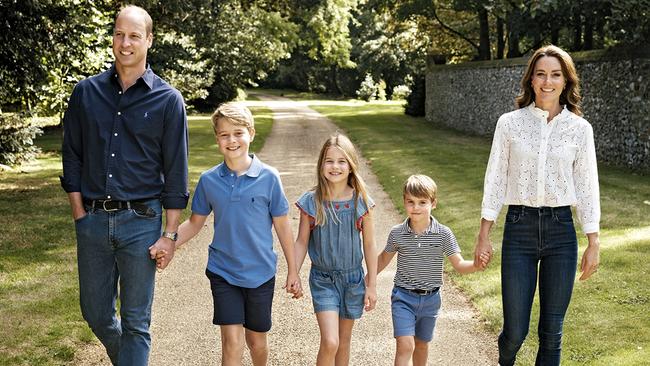
We know he loves Aston Villa and elephants, that he can be short of temper with his brother, but also wise in choosing a life partner.
Prince William is, at 40, ever polite in public and occasionally exuberant at a football match, but unlike Charles, whom we know a lot about, the next in line to the throne is relatively anonymous.
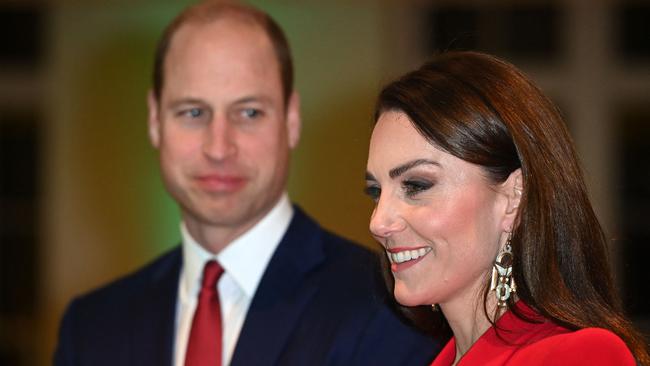
His wife, Catherine, absorbs the attention of the camera lenses leaving William, usually dressed in a two-button slim blue suit and red or blue tie, free to work the other side of the room or the roadside crowd in relative obscurity.
A poll taken since the queen’s death last September shows Catherine is the most popular royal on 38 per cent, followed by William on 34 per cent, then their children, and then Prince Charles.
It is a comforting thought to palace aides that the next generation is more popular than Charles, even though he has been a steady, moderate king since his mother died.
“The biggest asset William has is his wife,’’ says one palace insider, “but that shows he was hugely sensible about taking his time and making sure she would be able to adjust to the demands of royal life and Catherine has just blossomed in the role. I think the monarchy is in good hands.”
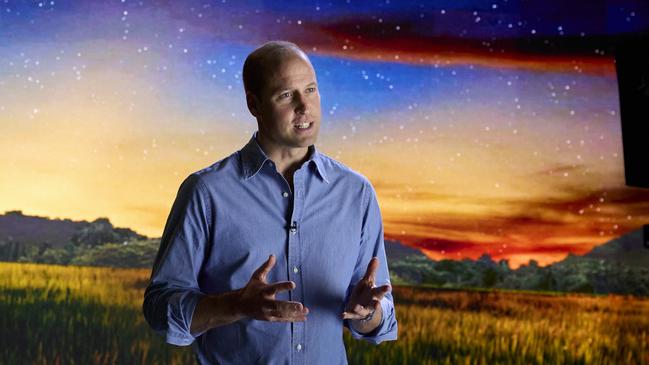
William’s passions are wildlife and the outdoors. He launched the hugely successful Earthshot Prize in 2020 which rewards solutions to repair and regenerate the planet, and in a small nod to his father’s “meddling” – which involved lengthy discoursing to politicians about topics of concern – William in his role as Founder of United for Wildlife, this year tweeted about the successful prosecution of an ivory poacher being a significant victory and landmark case.
While the couple have separate causes – Catherine’s is in early childhood and campaigning for greater research and emphasis on the care of the first five years of life – they are often together at public events, supporting each other.
“The star power of them as a couple is far greater than each individually,’’ one courtier says. “They bounce off each other and the public picks up on that pleasing vibe’’. He adds William and Catherine are “relatable” and the public is at ease around them.
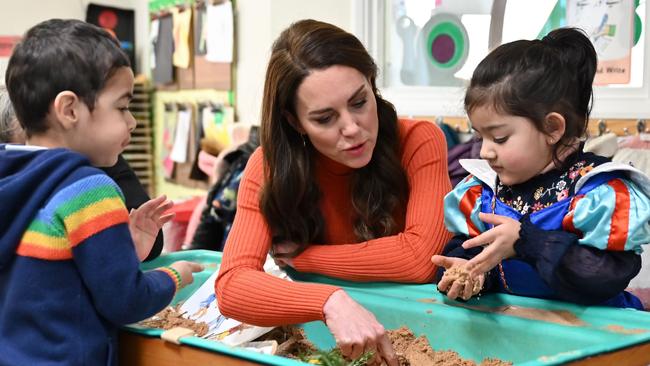
William is always complimentary of Catherine, for it is she or the children that the public wish to talk to him about. “I do a bit of cooking, not much though,” he told one wellwisher, adding “Catherine’s very good though.” This month he agreed with another that his wife looked amazing. “Oh, she always looks stunning,” he said.
The couple are competitive between themselves, especially as Catherine is a natural athlete. She quickly mastered abseiling in the Brecon Beacons in Wales last month, cheekily saying to her husband, “we are not racing”, as she plunged over the side of the cliff with a quick head start. She often beats William at tennis, but he’s the better sailor and horseman.
William has shown no impatience that his life’s work: in training in the military; of being denied an active service role in Afghanistan because of his royal position; of being a search and rescue pilot in Anglesea and then a pilot with the East Anglian air ambulance; and then taking on more and more royal duties to firstly support the queen and now the King, is secondary to the public’s interest in his wife and children.
There doesn’t appear to be any jealousy from him, but rather a comfort drawn from domestic stability and a sense of normality that envelops the family of five, what with George’s increasing maturity, Charlotte’s confidence and Louis’ cheekiness.
But the monarchy could depend very much on William and Catherine’s ongoing harmony – another divorce would be a dagger at the very heart of the royal institution – and how nine-year-old George, much shyer than his father’s ebullient “Basher Wills” moniker at early school, develops into a leader.
It has also been no coincidence that in the lead-up to the coronation the pair spent some time in Wales, reinforcing their new status as the Prince and Princess of Wales.
Soon they will travel to Australia, picking up a trip that had been planned but deferred due to Covid and then the queen’s death. And in a tacit acknowledgment of a loosening of support for the monarchy among young people in Britain, William and Catherine could turn to more causes involving teenagers and young adults, and not just their current focus on mental health.
“They are the star performers of the family, and in the areas where the monarchy needs a little boost we will see them deployed in the coming years,’’ the courtier says.
This comes as King Charles has a harder time justifying himself in the eyes of the public, compared to his late mother.
One of the country’s foremost political scientists, John Curtice, professor of politics at the University of Strathclyde, says Charles, while still widely popular, is inheriting the crown at a time when “the foundations of public support needed some reinforcement”.
Curtice says every year since 1983, the British Social Attitude survey asks the same question and a majority says it is important for Britain to continue to have a monarchy. For the past 30 years, on average two thirds of Britons have said the monarchy is “very important” or “quite important”.
But the latest poll suggests a growing number of younger people are becoming more distant to the crown, even though as they age, they then tend to switch to support.
Curtice says: “Thanks to the very low level of under 35s who now say that it is ‘very important’ to have a monarchy, the age difference in attitudes in response to the BSA question is as wide as it has ever been. Equally, the 43 per cent of under 35s who currently prefer the monarchy to a republic is well below the 70 per cent figure in Ipsos’ polls in 2012. In contrast, the level of support now among over 65s is only seven points down on a decade ago.”
He says the popularity of the monarchy has oscillated over the past decade – in both directions. In 2011 and 2012 three quarters of people told BSA it is important to have a monarchy. That was a time when the queen visited Northern Ireland and the Irish Republic, symbolically healing divisions on both sides of the border – most notably by shaking the hand of the former IRA commander Martin McGuinness. Similarly, in 2012, the year of the queen’s Diamond Jubilee, 79 per cent preferred a monarchy in an Ipsos poll while support for a republic slipped to 15 per cent.
But Curtice notes: “This purple patch did not last. Cracks in the image of a stable royal family appeared once again. In 2019, Prince Andrew was forced to withdraw from public life following a disastrous television interview and subsequent out-of-court settlement in respect of allegations about improper sexual behaviour. In early 2020, King Charles’s younger son, Harry, and his wife, Meghan, opted to pursue a private life in the US following a well-publicised and continuing falling out with other members of the family.
“A YouGov poll in October 2022 reported that only 55 per cent believe the monarchy is good for Britain, very different from the 88 per cent figure reported in 1969.” The BSA says in a report on its findings: “In any event, the future of the monarchy under King Charles and his heirs will rest on their ability to persuade new generations of the value of the crown.”
However, it notes as people age, their view of the monarchy changes and the gap between younger and older people was much the same in 1994 as it is now.
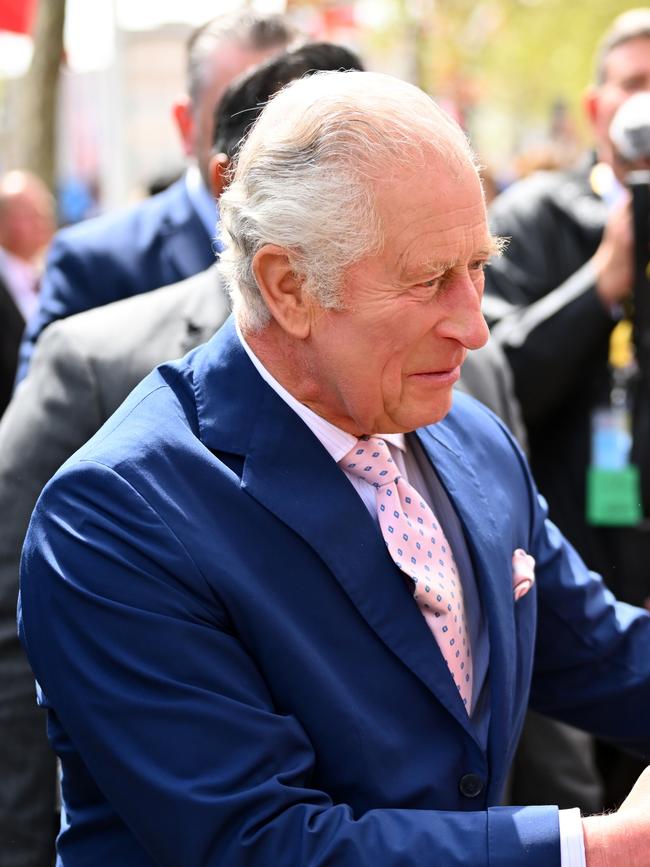
“The older people become, the more likely they are to feel it is ‘very important’ to have a monarchy,’’ the report says. “For example, in 1994 only 22 per cent of those born in the 1960s felt that it was ‘very important’ to have a monarchy. Today, 38 per cent of those born in the 1960s express that view, seven points above the proportion among all adults.”
Guy Goodwin, chief executive of NatCen, says: “British Social Attitudes is the longest-running measure of public opinion in Britain, and it shows a remarkable level of stability and continuity in support for the monarchy during the queen’s reign. It also reflects how the successes and challenges faced by the royal family can impact on public consent for the monarchy.
“In the wake of sadness and mourning at the end of the second Elizabethan era, it will remain to be seen how the British public will assess the performance of the royal family without the queen at its helm.”
Undoubtedly William and Catherine are crucial to this report card from the public, and so far, they seem to be hitting all of the right notes.


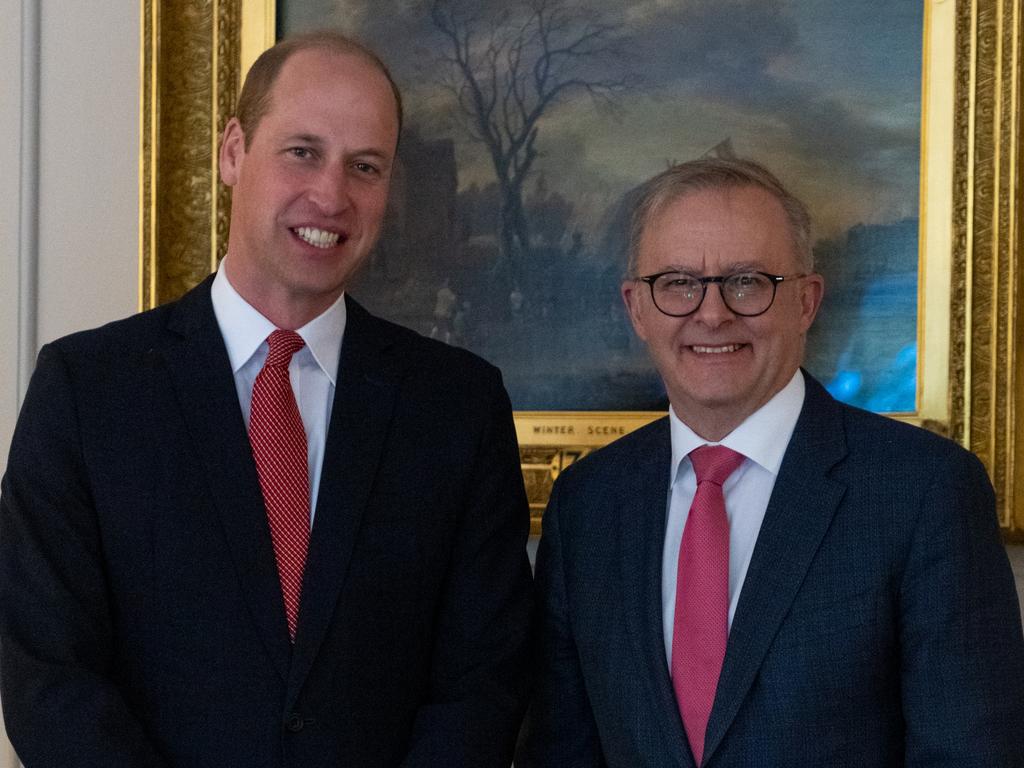




To join the conversation, please log in. Don't have an account? Register
Join the conversation, you are commenting as Logout